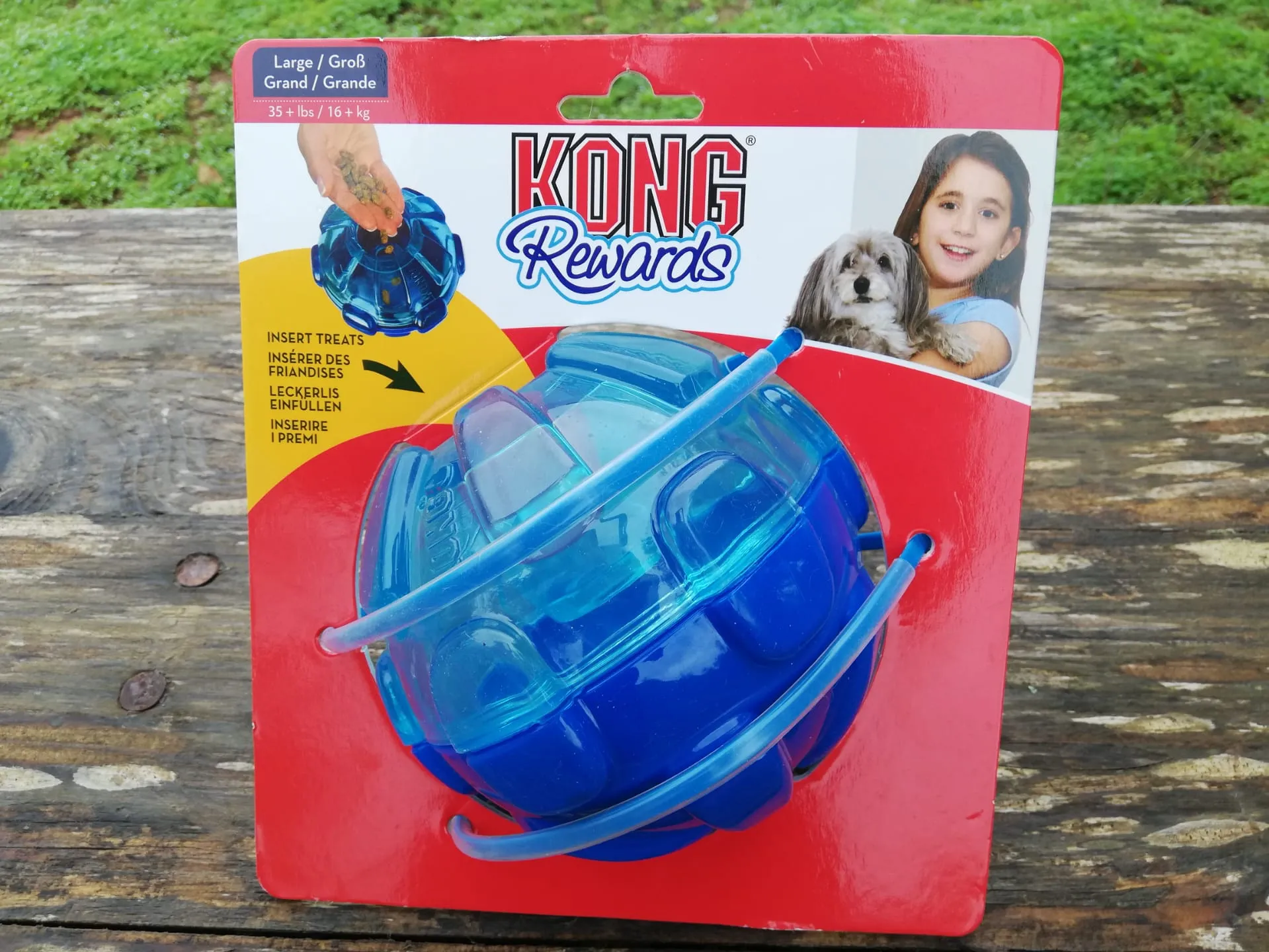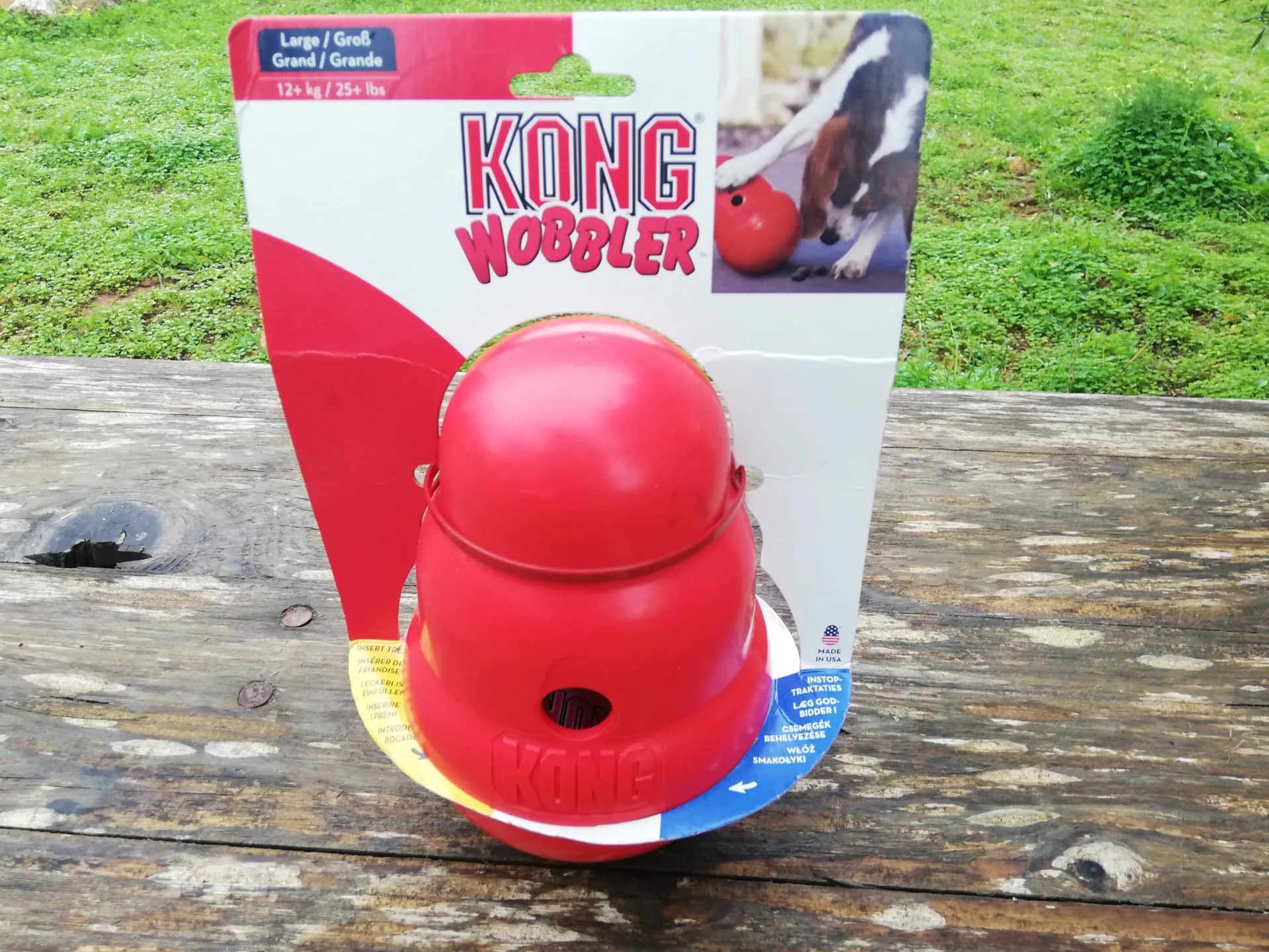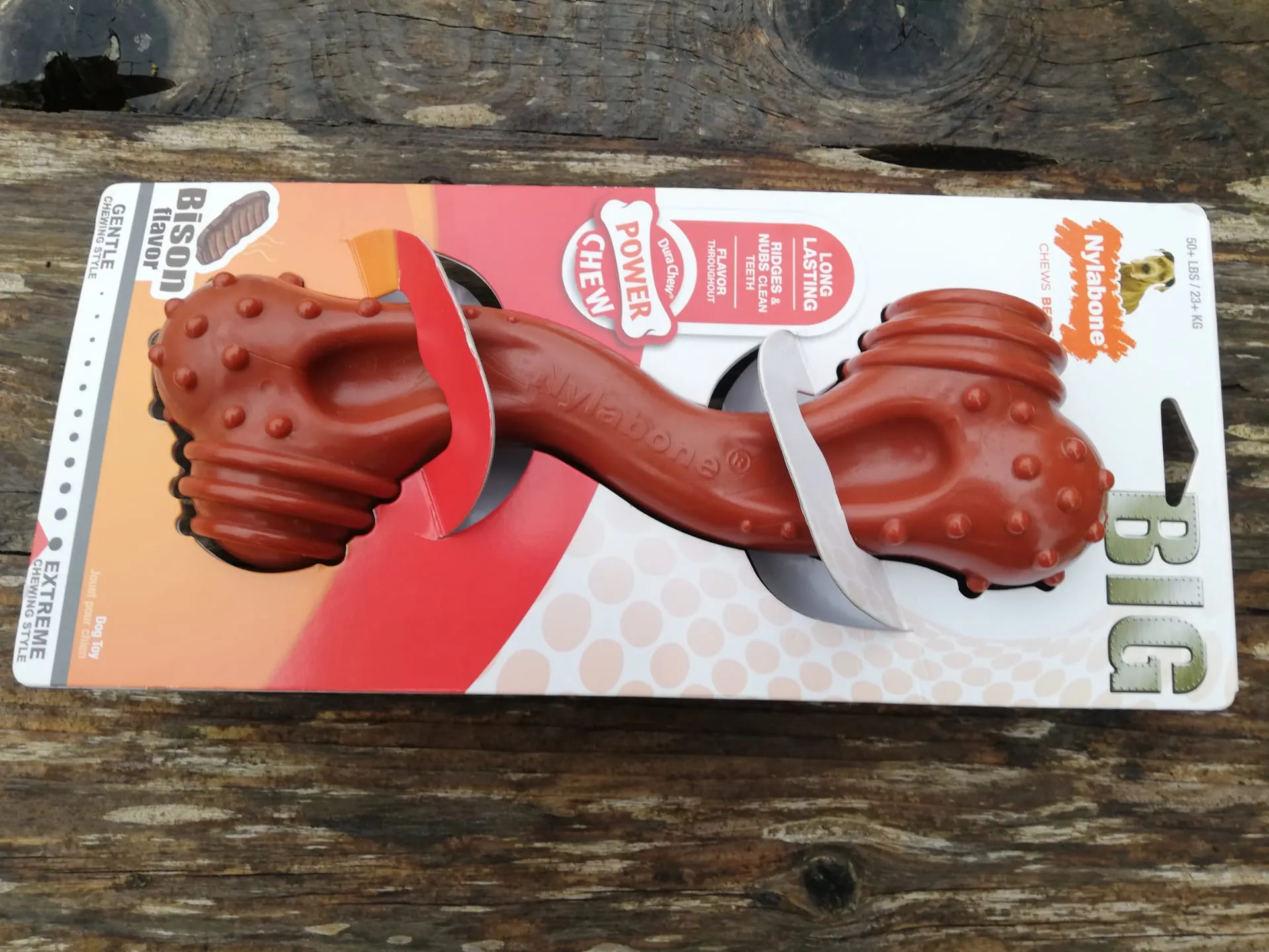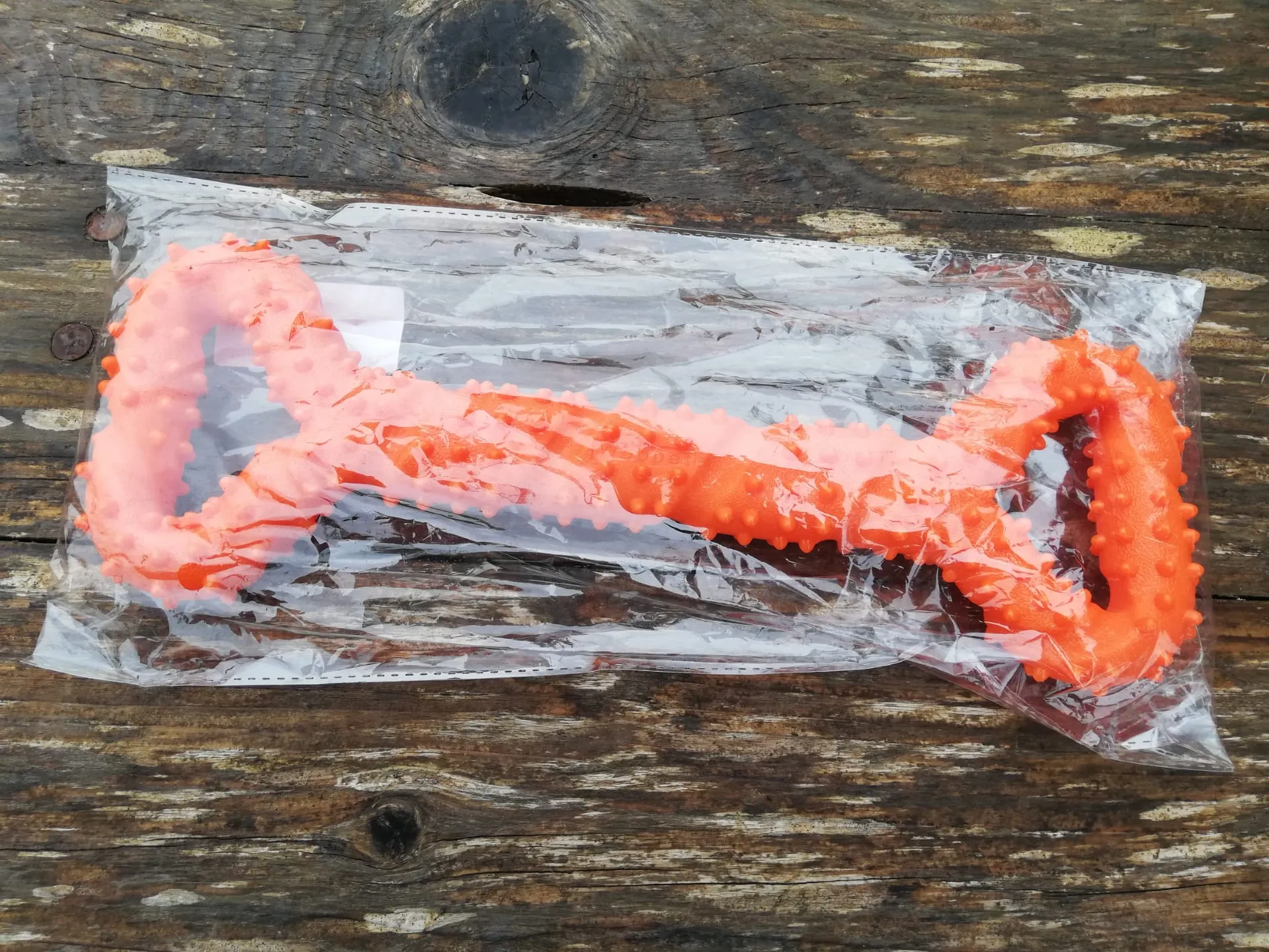Have you ever brought home a new dog toy, full of hope that this one would finally withstand your super chewer for more than an hour, maybe even a day? Only to find it in pieces almost as soon as the packaging is off? We know that feeling all too well at Dog Care Story. As dedicated dog owners and caretakers of our extended furry family at Benafim Dog Shelter, we’ve seen hundreds of toys meet an untimely end. Finding the Best Dog Balls For Aggressive Chewers isn’t just a quest for durability; it’s about providing safe, stimulating, and long-lasting fun for our powerful canine companions.
Our resident “experts” – the dogs themselves – are here to share their honest, paws-on feedback. We believe that when it comes to chew toys, no one knows better than the dogs who put them to the ultimate test. This article will delve into what makes a dog ball truly indestructible for the most determined chewers, showcasing top picks and highlighting critical features based on our shelter dogs’ real-world experiences. Get ready to discover which dog balls can stand up to even the toughest jaws!
Understanding Aggressive Chewing: Why Regular Balls Don’t Stand a Chance
Aggressive chewing isn’t necessarily a sign of a “bad” dog; it’s often a natural instinct, especially for certain breeds like Pit Bulls, German Shepherds, or Cane Corsos, or for dogs that are bored, anxious, or simply have a high prey drive. These powerful chewers require toys designed specifically to handle their intense chewing power. Standard dog balls, often made from thinner rubber or plastic, are no match for strong jaws and quickly become choking hazards or simply disintegrate into pieces that can be ingested, leading to digestive issues or blockages.
Choosing the right dog ball for an aggressive chewer is paramount for their safety and well-being. A durable, well-constructed ball can provide hours of mental stimulation, help clean teeth, reduce anxiety, and redirect destructive chewing habits towards appropriate outlets. Without proper toys, aggressive chewers might turn to furniture, shoes, or other household items, causing damage and potential harm to themselves. If you’re looking for chew toys for large breed dogs who are also aggressive chewers, the stakes are even higher due to their sheer force.
Our ‘Expert’ Testers: The Rescuedogs of Benafim Shelter
At Benafim Dog Shelter, we are fortunate to have a diverse group of dogs, each with their own unique chewing style and strength. This makes them the perfect candidates to rigorously test the claim of “indestructible” dog toys. For this review, our beloved dogs – including Nero, Max, Maya, Black Nero, Jean, and Pebbles – dedicated a full week to chewing, playing, staring, taking into water, burying, and rediscovering five different toys. Their mission: to provide honest, unbiased, and paws-on feedback on durability, engagement, and overall fun factor.
Our dogs put these toys through their paces daily, from gentle gnawing to powerful jaw work. Their reactions and the toys’ condition after intense use are invaluable in helping us recommend the best dog balls for aggressive chewers to dog owners like you. They don’t hold back, and their verdicts are as reliable as they come!
Key Features to Look for in Best Dog Balls for Aggressive Chewers
When shopping for dog balls that can withstand an aggressive chewer, it’s crucial to look beyond pretty colors and enticing squeaks. The core attributes of the toy’s material, design, and overall safety are what truly matter.
Material
The material is arguably the most critical factor. Forget thin plastics or soft vinyl. For aggressive chewers, you need:
- Natural Rubber: High-quality, dense natural rubber (like that used in classic KONG toys) is exceptionally durable, yet retains enough give to be satisfying for dogs to chew without being too hard on their teeth. It’s also often non-toxic and bouncy.
- Solid Nylon: Some balls are made from solid nylon, which is incredibly tough and designed for extreme chewers. These often have a bone-like texture and are less flexible than rubber.
- Virtually Indestructible Polymers: Advanced polymers are engineered to be extremely resistant to punctures and tears, offering superior longevity.
Design & Shape
- Solid Core: Avoid hollow or thin-walled balls that aggressive chewers can easily collapse or tear apart. A solid core or extremely thick walls provide much greater resistance.
- Textured Surfaces: Bumps, ridges, or nubs on the surface can help clean teeth and massage gums, adding a dental health benefit. They also provide interesting tactile sensations for your dog.
- Size-Appropriate: The ball must be large enough to prevent choking hazards but small enough for your dog to comfortably carry and play with. A ball that’s too small can be swallowed, while one that’s too large might frustrate your dog or simply be ignored.
- Minimal Protrusions: While textures are good, avoid balls with small, easily detachable parts that can be chewed off and ingested.
Functionality
- Treat Dispensing: Balls that can be stuffed with treats or kibble add an element of mental stimulation, turning playtime into a puzzle. This can keep aggressive chewers engaged for longer and redirect their focus from pure destruction.
- Bounce & Float: High-bounce balls add an exciting dynamic to fetch games. If your dog loves water, a ball that floats is a fantastic feature for aquatic fun.
Safety
Always prioritize safety. Ensure the ball is:
- Non-toxic: Made from pet-safe materials free from harmful chemicals.
- Free from Small Detachable Parts: Any component that can be chewed off poses a choking risk.
- Dishwasher Safe (Optional but Recommended): Easy to clean to prevent bacterial buildup.
By considering these features, you’ll be better equipped to select a dog ball that is not only fun but also safe and truly stands up to the challenge of an aggressive chewer. For instance, best puppy toys for aggressive chewers would also share many of these material and safety considerations, scaled for a younger dog.
Our Top Tested Dog Balls for Aggressive Chewers
Based on the rigorous testing by our Benafim Shelter dogs, here are the top dog balls (and a worthy ball-like alternative) that truly stood out for their durability and engaging features for aggressive chewers.
KONG Rewards Ball: The Durable Treat-Dispensing Bouncer
 KONG Rewards Ball – a durable treat dispenser that stood up to our aggressive chewers.
KONG Rewards Ball – a durable treat dispenser that stood up to our aggressive chewers.
The KONG Rewards Ball initially received a mixed reaction from our canine reviewers, but this was short-lived! The genius of combining a bouncy toy with a treat dispenser quickly won them over. For us humans, it was incredibly easy to load with treats, and for the dogs, accessing the rewards wasn’t overly complex, striking a great balance between challenge and satisfaction.
Our dogs, especially Jean, really took to the KONG Rewards Ball. Jean spent hours chewing on its squidgy, soft, and bouncy rubber side before triumphantly burying and retrieving it. His best friend Komo didn’t even get a look in! Crucially, despite hours of intense chewing from dogs like Jean, we found not a single tooth mark on the KONG Rewards Ball. This robust performance solidifies its place as one of the best dog balls for aggressive chewers. Its durable rubber construction not only withstands powerful jaws but also offers a satisfying mouthfeel that keeps chewers engaged. The combination of play and food makes it a real winner, offering both physical activity and mental stimulation.
The Details:
- Measurements: 12.7 x 12.7 x 12.07 cm
- Weight: 417 Grams
- Designed for dogs of 16 kg and above
- Material: Long-lasting KONG rubber
Summary: The KONG Rewards Ball combines two favorite dog activities: play and food. It proved to be a durable and tough toy that withstands a lot of chewing, bouncing, and interactive play, all while serving as a simple and effective treat dispenser. It’s an excellent choice for keeping aggressive chewers entertained and challenged.
KONG Wobbler: More Than a Ball, A Mental Challenge for Tough Chewers
 Pebbles and other dogs enjoying the KONG Wobbler, a mentally stimulating toy.
Pebbles and other dogs enjoying the KONG Wobbler, a mentally stimulating toy.
While not a traditional spherical “ball,” the KONG Wobbler deserves a prominent mention for aggressive chewers due to its exceptional durability and interactive nature, which is crucial for high-energy dogs. Our dogs’ initial reaction was hilarious – some were utterly perplexed by this large, wobbly red object! Unlike many other KONG treat toys, the Wobbler is made from a harder plastic polymer, not rubber, which contributes to its impressive toughness.
We humans found the twist-off lid easy for filling with treats. However, our canine experts initially struggled to extract the treats. We quickly realized the KONG Wobbler performs best on smooth surfaces, allowing it to “wobble” and release treats effectively. Once this was understood, and we used compatible treat sizes, the game changed entirely.
The large size of the KONG Wobbler makes it difficult for dogs to pick up and chew intensely, which paradoxically contributes to its “indestructible” nature for aggressive chewers. It’s designed for interaction and mental engagement, rather than direct, prolonged chewing. Our dogs found it highly engaging once they understood its mechanics, spending time nudging and pushing it to get their rewards. According to our dogs, and our observations, the KONG Wobbler is indeed indestructible and easy to use, provided the humans understand its surface and treat size requirements. It’s a fantastic interactive toy for aggressive chewers who need mental stimulation alongside physical activity.
The Details:
- Material: Hard plastic polymer
- Measurements: Diameter 13 x 19 cm
- Weight: 485 grams
- Designed for dogs of 12 kg plus
- Maximum Filling Capacity: 250 grams
Summary: Once our dogs understood the KONG Wobbler’s purpose, it became a huge hit. Its hard plastic construction and design make it highly resistant to aggressive chewing, focusing the dog’s energy on problem-solving to get treats. It’s an excellent option for mental enrichment and durability.
Other Highly Durable Chew Toys to Consider (Beyond Just Balls)
While our focus is on the best dog balls for aggressive chewers, sometimes a different shape can also hit the mark for durability and satisfaction. It’s worth exploring alternatives that share the same commitment to toughness, especially if your dog’s chewing preference varies.
Nylabone Extreme Tough Dog Chew Toy: The Unbreakable Bone
 Nylabone Extreme Tough Dog Chew Toy – a truly tough option for powerful chewers like Nero.
Nylabone Extreme Tough Dog Chew Toy – a truly tough option for powerful chewers like Nero.
Even though it’s not a ball, the Nylabone Extreme Tough Dog Chew Toy truly impressed our aggressive chewers and deserves a mention as an incredibly durable alternative. This Bison-flavored XXL chew toy claims to be perfect for the most powerful chewers and dogs over 23kg. Our 9-year-old Pit Bull, Nero, spent hours chewing on this toy, barely leaving a mark. It’s big in size but light enough for dogs to carry, and its slightly curved design makes it easy for them to grip with their paws for satisfying chewing.
Maya, who wasn’t used to toys, immediately took to this one, finding it engaging and enjoyable to run around with. Black Nero, known for his ability to chew through huge tree trunks and even bend strong fencing when anxious, met his match with this Nylabone. After hours of his intense efforts, there was barely a tooth mark. The Nylabone also keeps its flavor and doesn’t create any mess or smell, a bonus for human owners! This makes it a fantastic durable option for dogs that need something to really sink their teeth into.
The Details:
- Flavored throughout (Bison, Chicken, Turkey) with raised nubs for dental cleaning.
- Safe and non-toxic.
- Measurements: 30.48 x 13.97 x 5.08 cm
- Weight: 485 grams
- Designed for 23 kg plus dogs.
- Material: Tough, durable nylon.
Summary: For dogs who love to chew intensely and need something truly durable and flavorful, the Nylabone Extreme Tough Dog Chew Toy is an absolute winner. It may not be a ball, but its “Black Nero proof” durability makes it a top recommendation for aggressive chewers.
CyunCmay Indestructible Dog Toy XL Bone: A Fun, But Short-Lived Option
 The CyunCmay XL Bone, exciting but ultimately not “indestructible” for Black Nero.
The CyunCmay XL Bone, exciting but ultimately not “indestructible” for Black Nero.
The CyunCmay Indestructible Dog Toy XL Bone sparked immediate excitement among our dogs, but sadly, this enthusiasm was short-lived for our super chewers. While Black Nero had a blast with it for about 30 minutes – enjoying tug-of-war, chewing, and fetching it from the lake – its soft, rubbery, and pliable material ultimately couldn’t withstand his rigorous testing. Within half an hour, there were significant teeth marks, and it was almost split in two.
This toy highlighted the crucial difference between a “fun” toy and a truly “indestructible” one for aggressive chewers. While it was popular for interactive play and retrieval, it failed to meet the durability standards required for intense chewing. It serves as a stark reminder that claims of “indestructible” need to be critically assessed, especially when looking for products like the best dog balls for aggressive chewers where safety and longevity are paramount. Our dogs were left disappointed by its short lifespan.
The Details:
- Measurements: 32.9 x 12.2 x 3.8 cm
- Weight: 330 Grams
- Material: TPR environmentally friendly material, no chemical smell, safe and non-toxic.
- Surface designed to help clean a dog’s teeth and control plaque and tartar.
Summary: While the CyunCmay XL Bone offered short-term fun, it is not recommended for aggressive chewers looking for a long-lasting toy. It’s suitable for retrieval games but should not be left unsupervised with strong chewers.
Safety Tips When Choosing and Using Dog Balls for Aggressive Chewers
Even with the most durable dog balls, safety should always be your top priority. Here are essential tips to ensure your aggressive chewer stays safe and happy:
- Size Matters Immensely: Always choose a ball that is appropriate for your dog’s size and breed. A ball that’s too small can be a severe choking hazard. If your dog can fit the entire ball inside its mouth, it’s too small. Conversely, a ball that’s too large might be frustrating or uncomfortable for them to interact with. Consider your dog’s adult size if you’re buying for a growing puppy.
- Regular Inspection is Key: Even “indestructible” toys can show wear and tear over time. Regularly inspect all of your dog’s toys for cracks, loose pieces, or excessive damage. If a toy starts to break down, remove it immediately to prevent ingestion of small fragments which can cause digestive problems or blockages.
- Supervision During Playtime: Never leave an aggressive chewer unsupervised with a new toy, especially during the initial stages. Observe how they interact with it. This allows you to intervene if they try to break it apart or if it shows unexpected signs of weakness.
- Introduce New Toys Gradually: Some dogs can be overly excited by new toys. Introduce new chew balls in a calm environment and encourage appropriate chewing behavior.
- Rotate Toys: Rotating your dog’s toys can keep them interested and prevent them from fixating on one toy to the point of destruction. It also gives toys a chance to “rest” between chewing sessions.
- Check Materials: Ensure the toy is made from non-toxic, pet-safe materials. Reputable brands like KONG and Nylabone generally use safe materials, but it’s always good to double-check.
By following these safety guidelines, you can provide your aggressive chewer with the best dog balls and chew toys, ensuring both their enjoyment and their well-being.
Conclusion – Our Dog’s Verdict on the Best Balls for Aggressive Chewers
The quest for the truly indestructible dog toy is a familiar one for many dog owners, especially those with aggressive chewers. After extensive, paws-on testing by our expert rescuedogs at Benafim Shelter, we’ve gathered crucial insights into what truly stands up to the challenge. While many toys claim to be indestructible, few truly deliver.
For those specifically seeking the best dog balls for aggressive chewers, the KONG Rewards Ball emerged as a clear frontrunner. Its durable rubber construction, combined with its treat-dispensing feature, provides both physical and mental stimulation without succumbing to powerful jaws. The KONG Wobbler, while not a traditional ball, offers an equally robust and mentally engaging alternative, proving “indestructible” once its unique interactive mechanism is understood. The Nylabone Extreme Tough Dog Chew Toy, though a bone, also sets a high bar for sheer durability for the most powerful chewers.
Ultimately, choosing the right dog ball means prioritizing material strength, appropriate size, and safe design. Always remember to supervise playtime and regularly inspect toys for wear. Equipping your aggressive chewer with a high-quality, durable dog ball not only saves you money but, more importantly, keeps your beloved companion safe and happily engaged. Trust our experts – the dogs themselves – to guide you to the best choices for your furry family member!
References
- Check KONG Rewards Ball Price on Amazon
- Check KONG Wobbler Price on Amazon
- Check Nylabone Extreme Tough Dog Chew Toy Price on Amazon
- Check CyunCmay Indestructible Dog Toy XL Bone Price on Amazon
- Check HETOO Indestructible Squeaky Dental Care Dog Toy Price on Amazon
We are reader supported. When you buy through our links, we may receive a commission.
